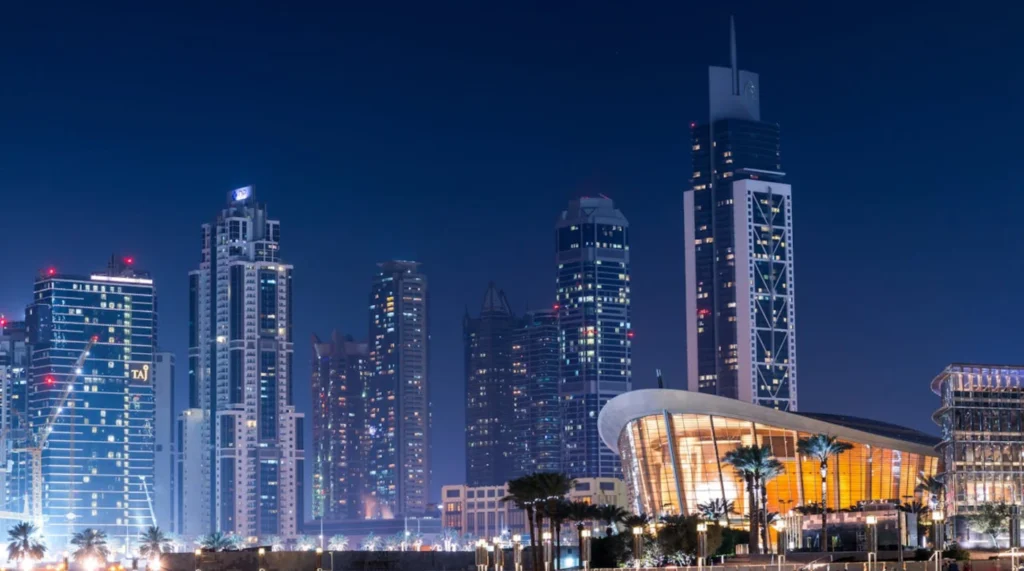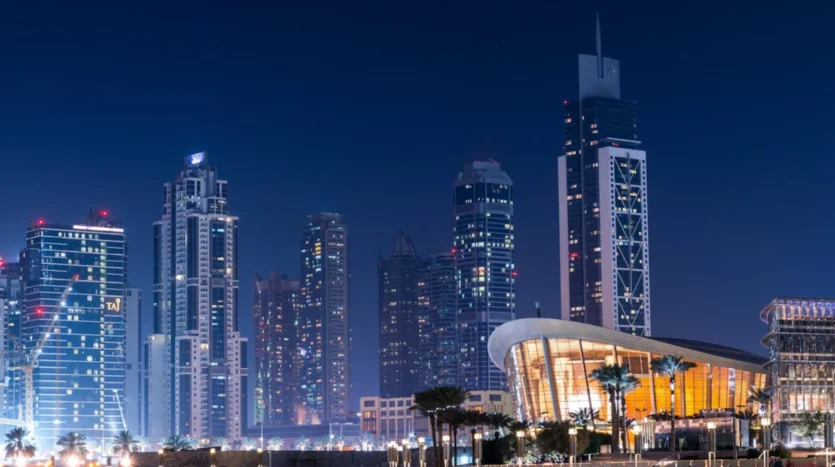What are the pros and cons of buying property in Dubai?
Have you ever asked yourself, “What are the pros and cons of buying property in Dubai?” This article explains the benefits and challenges in simple, short sentences. It is designed to support smart investment decisions. In this guide, we cover buying property in dubai pros and cons so that both first-time buyers and experienced individuals feel confident.
If you wish to invest in dubai, you will find that the tax-free setup and modern amenities work in your favor. Investors benefit from rental income that improves overall returns. Many dubai properties boast contemporary designs and excellent infrastructure that attract tenants.
Pros of Buying Property in Dubai
Dubai’s tax-free status is one of its biggest advantages. There is no annual property tax and no income tax on rental earnings. Which enhances profits.
Investors can also observe high rental yields in many projects, with returns ranging from 6% to 8%. Options range from luxury properties to more affordable units. For example, dubai marina is a hotspot for premium living with beautiful waterfront views.
The city has world-class transportation and ongoing real estate development projects. Modern infrastructure and smart initiatives ensure that the market remains appealing. Buyers can choose from a range of residential and commercial properties that meet diverse needs. Many real estate investors appreciate these strengths when making buying property in dubai decisions.
For an in-depth look at long-term investment trends, learn more about whether investing in Dubai real estate is worth it in 2025.
Cons of Buying Property in Dubai
No market is without its challenges. There are clear risks of buying property in dubai you should consider such as:
- Sometimes, property prices can drop unexpectedly due to market volatility.
- Oversupply in certain areas may lead to lower returns, and shifting policies can create uncertainty.
- For non-residents, regulatory changes may set strict requirements. Some buyers also face higher down payments and complex legal steps.
- Service charges and maintenance costs can also be high. Global shifts in global economic conditions might affect buyer sentiment.
- At times, fluctuations in exchange rates add further complexity.
The dubai land department continuously reviews and updates regulations, which can affect transaction processes for foreign buyers.
In summary, careful research is essential when considering a property investment in this vibrant market. Real estate investors are encouraged to adopt a robust real estate investment strategy. Many view this as not only a great way of buying real estate but also as a promising long term investment.
Every factor should be examined closely to shape smart investment decisions. Keep in mind that emerging opportunities in the bustling market are often based on both strong demand and impressive estate investment in dubai prospects.
For more on info on property rights, check out our post on Freehold vs Leasehold Properties in Dubai: What’s the Difference?.

Real-World Examples and Case Studies
Understanding real-life experiences can bring clarity to the pros and cons of buying property in Dubai. Here are two case studies that illustrate diverse investment scenarios:
Case Study 1: The Expat Investor – Sarah’s Story
Background:
Sarah, an expat from the UK, ventured into Dubai’s real estate market to secure a family home.
The Pros:
- High Rental Yield: Sarah’s investment generated robust rental income that significantly offset her mortgage payments.
- Tax Benefits: The tax-free environment allowed her capital to grow without substantial annual deductions.
The Cons:
- High Maintenance Costs: Sarah discovered rising service charges in her residential community and adjusted her budget carefully.
- Regulatory Hurdles: Initially, navigating the paperwork and foreign ownership regulations was complex.
Outcome:
Sarah thinks that, despite some challenges, the benefits of her investment are worth it. She values the steady rental income and the chance for property value to increase.
Case Study 2: The Diversified Investor – Ahmed’s Approach
Background:
Ahmed is an experienced investor from the UAE. He decided to diversify his portfolio. He bought a commercial property in Dubai’s busy financial district.
The Pros:
- Prime Location: The property’s central location ensured high tenant demand and occupancy rates.
- Capital Appreciation: Continuous enhancements to the infrastructure and a growing business hub contributed to significant property value gains.
The Cons:
- Market Volatility: Ahmed experienced periods of price correction, which temporarily affected his portfolio’s overall value.
- Economic Sensitivity: Global economic shifts led to cautious tenant behavior, impacting leasing periods.
Outcome:
Ahmed’s diversified approach provided a buffer against market fluctuations. His experience highlights that thorough due diligence and a well-balanced portfolio can help mitigate potential risks.

How to Mitigate Risks and Make Informed Decisions
To ensure you maximize the benefits while minimizing the downsides, consider these strategies when buying property in Dubai:
1. Conduct Thorough Market Research
- Evaluate Trends:
- Regularly review market reports and property value forecasts.
- Understand Local Dynamics:
- Identify emerging areas and established districts to balance your investments.
2. Diversify Your Portfolio
- Spread your investments across different property types—residential, commercial, freehold, and leasehold—to reduce risk.
3. Engage Professional Services
- Property Management:
- Working with experts from West Gate Dubai Property Management can help maintain your property’s value and manage tenant relations effectively.
- Financial and Legal Advice:
- Professional advisors can guide you through complex regulations and negotiate better contract terms.
4. Plan for Long-Term Maintenance
- Budgeting:
- Factor in maintenance, service charges, and unforeseen repairs.
- Regular Inspections:
- Scheduling routine check-ups can prevent small issues from escalating into costly repairs.
5. Stay Updated on Regulation Changes
- Keep abreast of any modifications in ownership laws or visa regulations that might affect your investment.

Conclusion
In weighing the question, “What are the pros and cons of buying property in Dubai?” the answer is multifaceted. Dubai has many benefits. These include high rental yields, tax-free advantages, modern infrastructure, and a diverse market.
However, potential investors must also contend with market volatility, regulatory changes, high maintenance costs, and global economic influences. To manage these challenges, do careful research. Spread out your investments. Use expert help, like the services at West Gate Dubai Property Management.
Ultimately, the decision to invest should align with your financial goals, risk tolerance, and long-term plans. With the right approach, buying property in Dubai can be a rewarding experience. It can bring personal satisfaction and strong financial returns.
Comment below with your questions. You can also get in touch with us at West Gate Dubai to learn more. We can help you make a smart and informed property investment decision in Dubai.
Frequently Asked Questions About Buying Property in Dubai
Q: What are the main benefits of buying property in Dubai?
Dubai has tax-free returns and high rental yields. It has a great global location and modern infrastructure. There are many types of properties available. This makes Dubai appealing for both homes and businesses.
Q: What are some common drawbacks of the Dubai property market?
A: Potential drawbacks include market volatility, high maintenance and service charges, regulatory changes, and economic fluctuations affecting property prices.
Q: Can foreigners easily buy property in Dubai?
A: Yes, Dubai is known for being friendly to investors. However, foreign buyers may need to pay higher down payments. They also have to follow certain ownership rules.
Q: How do freehold and leasehold properties compare in Dubai?
A: Freehold properties offer complete ownership and are often preferred by investors, while leasehold properties come with certain limitations. For more details, refer to our post on Freehold vs Leasehold Properties in Dubai: What’s the Difference?.
Q: How can professional property management benefit my investment?
Working with reliable property management services is important. Services like those at West Gate Dubai Property Management can help maintain high property value. They also manage tenant relations and reduce maintenance costs, which can improve your returns.
This guide looks at the pros and cons of buying property in Dubai. It aims to answer the key question: “What are the benefits and drawbacks of investing in Dubai?” With clear insights and real examples, you can now better decide if Dubai’s property market fits your investment goals. Remember, the key to success lies in thorough research, diversification, and partnering with seasoned experts.
Comment below with your questions or connect with us at West Gate Dubai to start your journey toward a well-informed property investment in Dubai!





